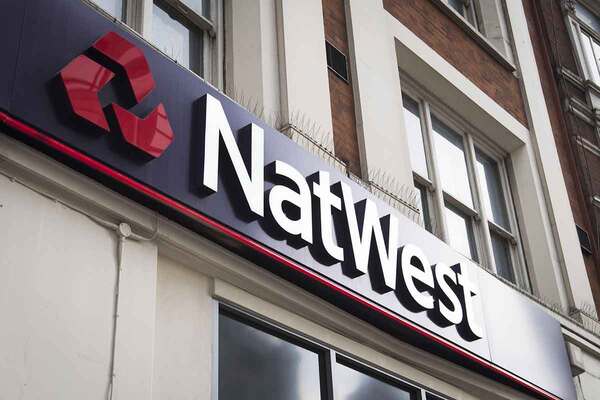You are viewing 1 of your 1 free articles
GMCA mayor looks to streamline process to bring non-decent homes into public ownership
The mayor of Greater Manchester will look to make it easier for homes that do not comply with decency standards to be brought into public ownership, with the process for councils to acquire them set to be “streamlined”.

Speaking at the Housing Conference 2023 in Manchester, Andy Burnham said that next year he will introduce a ‘GM Property Check’ system, which will allow tenants to request independent checks of their private rented homes without fear of retribution by their landlord.
Where landlords are not maintaining their properties to a decent standard, they will face action underpinned by an independent, regular property inspection against transparent standards.
The checks and subsequent certificates will provide tenants with more information about their homes. Meanwhile, the landlord could then be issued with a property improvement plan, which will show them clearly what needs to be done to bring the home up to the decent standard and signpost them to any support and advice that is available.
But if the landlord refuses to engage with the process and all else fails, councils will be able to intervene and acquire properties from landlords that are unable or unwilling to meet decency standards. Councils will also protect tenants if they have problems with their landlord or home.
Mr Burnham said that while it is already possible for councils to bring a compulsory purchase order on a property, it is “quite time-consuming, complex and quite costly” so there is often a reluctance to initiate those proceedings. He said that he would like to see a “more streamlined, easier, cheaper process” through which homes can be taken into the public stock.
The Greater Manchester Combined Authority (GMCA) is currently working with partners and stakeholders to develop a Good Landlord Charter. This is aimed at setting out clear, practical and accessible standards to recognise good practice, empower tenants and drive up the quality of renting in the city region.
Decent landlords would receive recognition for their approach, while tenants would have a clearly defined expectation from their landlord.
The mayor also called on ministers to give the city region the ability to apply a mandatory and ambitious Decent Homes Standard to all rented homes.
He also urged for a formal, direct, proactive partnership between the Department for Work and Pensions (DWP) and local authority enforcement teams, so that tenants who rely on Universal Credit or housing benefit to help pay their rent can expect their homes to meet the Decent Homes Standard.
Mr Burnham said the policies will be funded from devolution powers given to the GMCA.
In March, as part of a devolution deal, the government gave the mayor of Greater Manchester £150m of brownfield funding and powers to underpin the new GM Good Landlord Charter.
Mr Burnham said: “In terms of how do we fund it, we have had extra funding with regard to housing standards that Michael Gove found for social housing, we’ve had some funding for enforcement to beef up our enforcement capability so that will help. We have the ability, though, to then bring those multi-agency teams together in the way that I described.
“So DWP and ourselves have the chance to forge a new partnership, following the trailblazer devolution deal. The fire and rescue service have a responsibility here on building safety as well. What we are going to do is comprise those multi-agency teams to add value to the enforcement capability in Greater Manchester, and really start to take a whole-system approach to this question of housing inspection and housing standards.”
He added: “So those who asked whether it is affordable to give everybody a good home, I would say it is our failure to provide it that leads to the waste of billions of pounds of public money dealing with the social crises that come from the lack of it, because housing is true prevention.”
Mr Burnham said that the death of toddler Awaab Ishak due to the conditions in his family’s home is a “moral outrage” that has “sent shockwaves through housing” and requires a “whole-sector response”.
Mr Burnham said that he was also encouraged by signs of progress such as the Social Housing (Regulation) Bill, which contains Awaab’s Law, giving strict deadlines for social landlords to deal with damp and mould, going to parliament for the final time on 27 June.
“This is important; it signals a direction that the country needs to go in when we get more serious, all of us, about housing standards,” he said.
Mr Burnham said that Awaab’s death was an “entirely man-made problem, an indictment of national housing policy under successive governments”.
He added: “It is time in my view for the UK to follow Finland and adopt a Housing First policy… Our national mission should be to give all people a good secure home. It’s a simple fact that you can’t achieve anything else in life without that foundation beneath you.”
Mr Burnham said: “So, in conclusion, we believe that the approach that I have outlined is in effect to create a new integrated place-based service for raising housing standards across all sectors, bringing clarity and collaboration to a highly fragmented sector.”
When asked if a Labour government would have a policy on social housing focused on housing associations or a shift to direct local authorities, he said he believes there would be a growing appetite for the latter.
He said: “Honestly, I do, because I think it’s like anything that was sold off in the 1980s – there comes a point where you realise that you ended up in the wrong place, when that happened.
“If you sell off life’s essentials, you find yourself in a position, in 2023, in a cost of living crisis, where you can’t control transport, and you can’t get your hands on housing, and really make it make it work. It’s not to in any way… denigrate the efforts of housing associations across the country. But I do believe we’re in a position where we have to have more public control of the essentials if we’re to have a society where everybody is able to access the basics, and I kind of feel increasingly, devolution in England is like, sort of unpicking some of those reforms that the fragmentation that came from them, and trying to now glue things back together again.
“We need a collaborative approach that actually empowers the individual resident over the private interest and not the other way around. We’ve ended up at a point where the power is with the powerful interest and not with the public and we need to turn those tables.”
Mr Burnham added that he is pleased the GMCA’s partnership with Homes England and the greater flexibility it has over the Affordable Homes Programme will allow it to “establish real momentum” behind its drive to build “30,000 truly affordable net zero homes by 2038”.
Mr Burnham said that the mayor’s office has established an ethical lettings agency called Let Us, which helps landlords to rent properties out on social rent, and he wants to start to build a stock with more direct ownership.
He said: “If landlords want to exit the market, we would look at that and look at other Greater Manchester housing providers as well.”
Sign up for Social Housing’s weekly news bulletin
Social Housing’s weekly news bulletin delivers the latest news and insight across finance and funding, regulation and governance, policy and strategy, straight to your inbox. Meanwhile, news alerts bring you the biggest stories as they land.
Already have an account? Click here to manage your newsletters.
RELATED







